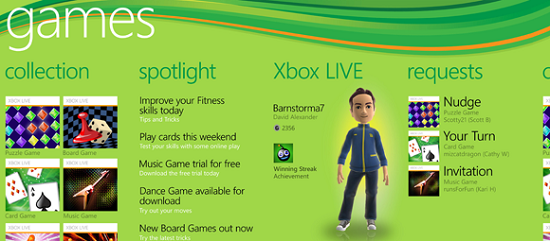
Ah, video games. It’s a pastime that many, many people have made use of over the years, and it’s an industry that’s managed to survive all sorts of controversy, and come back twice as strong because of it. Video games are an excellent way for parents to spend time with their kids or to be used as a distraction to the parents can drive without incident. It’s also a means for us to ask, “What does this do?” or “What happens if I go over there?” They keep us curious. Video games have taken several drastic turns over the years, especially when it comes to the home consoles that people love to argue about. But, perhaps even more so, the changes that have come to mobile gaming are spectacular, especially when we look at the simple games of yester-year, to the types of titles we see on our phones now. And, it’s with that huge difference from yesterday to today, that I’m beginning to wonder if mobile gaming will actually take over the home console market.
For anyone who has been playing games on their phone for a few years now, you know that they’ve taken a pretty significant turn for the better. In the early 2000s, gaming on a mobile phone was all about the quick fix, but not because the game was built like that, but because there was only so much you could take. Rolling a bowling ball down a single lane, and looking at paper-like characters on a screen. Or, using your phone’s physical buttons to control an 8-bit character on the screen as you were tasked with completing a level that only lasted 5 minutes. These games weren’t created like this for nostalgia purposes. They were made like this because there weren’t any other options.
But that’s not the case today. Titles like Infinity Blade or RAGE HD for iOS, or games like Dungeon Defenders HD for Android (and pretty much any Xbox LIVE-enabled title for Windows Phone) show that mobile gaming isn’t about the simple anymore. They’re beautiful to look at, feature in-depth control schemes (in some cases, anyway), and playability that can compare to some games available on home consoles. The majority of titles may not be the most advanced games out there, but they’re still fun to play, and they’ve already got access to hundreds of thousands of people, thanks to the fact that cell phones/smartphones are about as ubiquitous as they can be.
It’s about the user base. There’s no denying that smartphones have a huge user base, but it’s one that runs the full gamut of the spectrum for the general user. Someone who buys an iPhone or an Android phone isn’t necessarily a gamer. More to the point, even if they do download a game like Angry Birds, or some other casual game of the sort, it doesn’t necessarily mean they’re paying for it, either. On the flip-side, when someone buys a home video game console, while there are other things to do on it nowadays, its primary function is to play video games. If someone buys an Xbox 360 or PlayStation 3, then they’re more than likely going to be playing video games on it.
But, that aside, I think mobile gaming has some real potential to not only aide the home console market, but overtake it in the “near” future. Why? Because of the user base. It’s probably not a stretch to believe that those who own a video game console also own a smartphone. So if developers can harness the hardware of the smartphone, or perhaps a tablet would be better, then playing the game from the console and transitioning it to the mobile device doesn’t seem impossible. In fact, it’s the same idea that Microsoft has for their Windows Phone platform: the ability to start playing a game on your Xbox 360, and continue playing it from your phone (or vice versa, if you prefer). It’s an idea that hasn’t seen the light of day just yet, but Microsoft’s obviously not going to let something like that drop.
It will be a slow process, though. As of right now, the NPD Group still tracks the sales of download-only games and mobile games as a broad category that includes the sales of used games as well. So, while there’s obviously a lot of money in this specific market ($1.85 billion in the first quarter of 2011), it hasn’t begun to make a big enough dent to warrant its own specific category. As our smartphones get more and more advanced, and people start finding their sweet spot for screen size (4-, 4.3-, 4.5-inches?), then playing those advanced games won’t seem so much like a quick way to pass time, but as a means to actually play the game we want to play, whenever we want to play it. Even if a title like Infinity Blade could get a full console version, and the mobile version acted as a natural extension to that title, it would act as a catalyst to the mobile takeover.
Home video game consoles aren’t going anywhere anytime soon. After all, the power of the Xbox 360 and PlayStation 3 is significant, and people want beautiful graphics, as well as in-depth stories and gameplay. However, our phones are getting more and more advanced with each passing day, so the market may look very, very different in a few years. (If phone manufacturers can create a device that’s comparable to Sony’s brand new portable gaming console, the PlayStation Vita, then this conversation gets even more stable ground.)
How do you feel about mobile gaming? Do you think it’s a market that will ever surpass, or even compare, to home consoles? Or is it just a means to pass the time? Let me know in the comments below what you think.